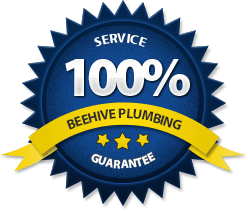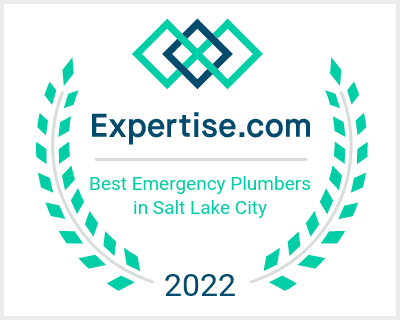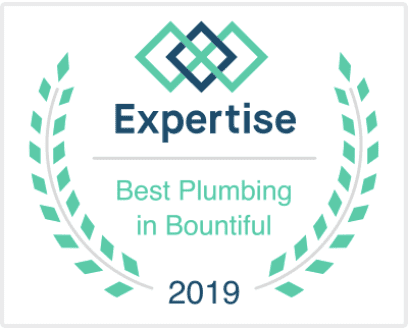By Matt Naylor, Licensed Master Plumber at Beehive Plumbing
Most homeowners don’t give much thought to the water pressure in their home. But it’s something that can have a big impact on your plumbing system.
Just like high blood pressure is harmful to the human body, high water pressure can damage your pipes, fixtures, and appliances.
Understanding how to monitor and manage your water pressure can save you from costly repairs. It can also extend the life of your plumbing system.
Here are a few key reasons why water pressure matters and what you can do to manage it.
1. Check and Replace Your Pressure Reducing Valve (PRV) Regularly
Your home’s water is delivered from the main city supply at a certain pressure, and it’s up to your Pressure Reducing Valve (PRV) to regulate that pressure to a safe level for your plumbing system.
The PRV reduces the pressure from the water main (which can be as high as 160 PSI or more) to a manageable level for your pipes, usually between 60 and 70 PSI.
I’ve seen firsthand how important this small device is. Unfortunately, the PRV often goes unnoticed until it fails.
- Why PRVs Fail: The PRV tends to wear out every couple of years, especially if a cheaper model was installed during new construction.
I like to tell people every two years you should have your pressure checked. Because if the PRV fails, full city pressure can enter your home.
That’s hard on your plumbing system. - What Happens If the PRV Fails: If the PRV fails, it allows full city water pressure to enter your home. This puts extra stress on faucets, fixtures, and appliances.
This excess pressure can cause leaks in faucets and toilets, or even damage your water heater. Over time, the high pressure causes leaks and wears down seals in appliances.
2. The Risk of Pressure Spikes
In areas with a lot of construction, like many parts of Utah, the city’s water system can experience pressure spikes. When water is in high demand, or when construction crews disrupt the water supply, the pressure in the system can jump.
I’ve seen these spikes go as high as 180 PSI—dangerously high for a residential plumbing system.
- Impact on Your Home: If your PRV isn’t working properly, these pressure spikes can literally blow fittings apart or cause supply lines to burst. I’ve seen that pressure spike literally blow a supply line right off a faucet and flood a home.
Managing water pressure is about more than just convenience; it’s critical for the long-term health of your plumbing system.
3. Preventing Water Hammer with Water Hammer Arresters
Pressure isn’t just about the water flowing into your home—it’s also about how that water moves through your system. Quick-closing valves–like those in your washing machine or dishwasher–can cause a phenomenon known as water hammer.
When the flow of water is suddenly stopped, it creates a shockwave that reverberates through the pipes. Over time, this can loosen fittings and cause leaks.
- Water Hammer Arresters Help: A water hammer arrester is installed on quick-closing valves and works by absorbing the shock with a chamber of compressed air.
This prevents the shockwave from causing damage. Without a water hammer arrester, that pressure spike can “shake fittings completely loose,” leading to leaks or even burst pipes.
The Importance of Regular Maintenance
The key to avoiding pressure-related issues in your plumbing is regular maintenance.
As a homeowner, here are some practical steps you can take:
- Have Your Water Pressure Checked: Make it a habit to check your water pressure every two years.
This helps catch a failing PRV before it becomes a problem. A professional can measure your pressure and recommend any necessary replacements. - Replace Your PRV Every 2–5 Years: Depending on the quality of the valve, it should be replaced every few years. While cheaper models wear out faster, a high-quality PRV can last up to five years.
Install Water Hammer Arresters: If you notice banging or vibrating pipes, especially when using appliances like washing machines or dishwashers, it might be time to install water hammer arresters to protect your plumbing.













